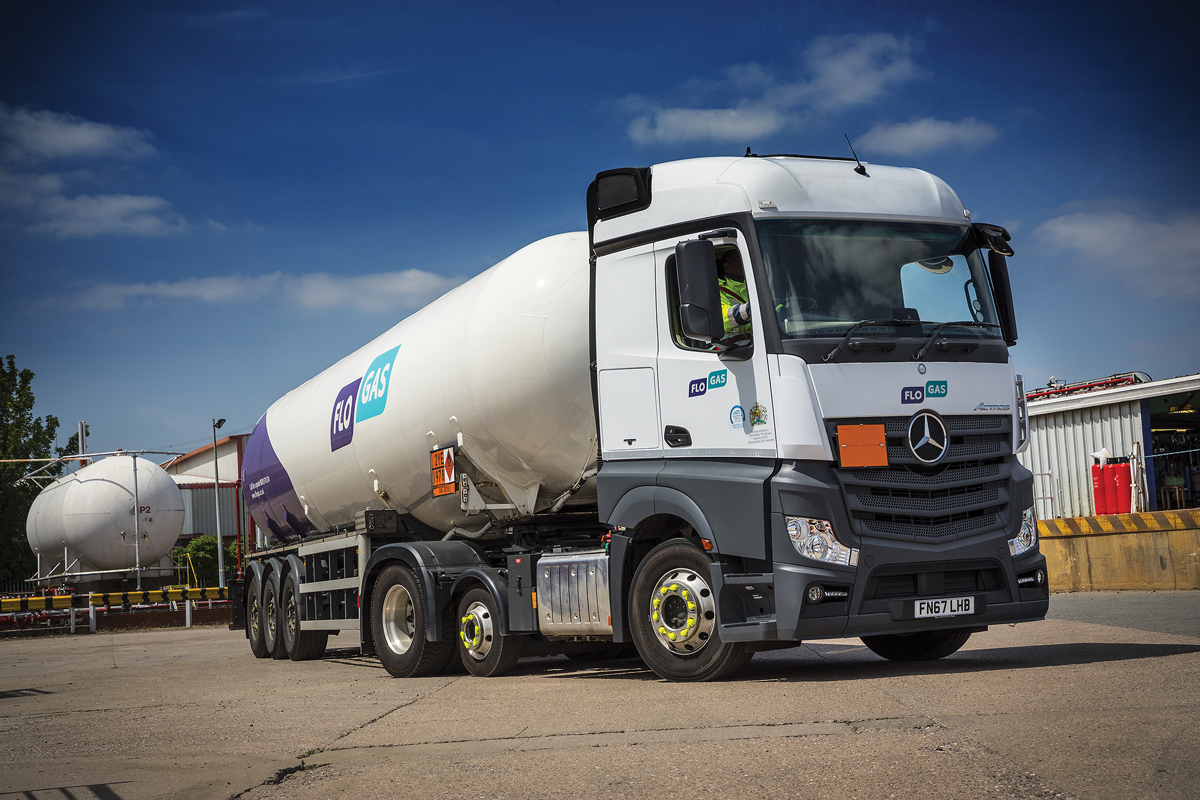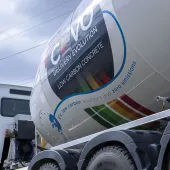Carbon Reduction for a Changing Landscape

First published in the December 2019 issue of Quarry Management
Against today’s environmental and political backdrop there has been a notable shift in thinking within the aggregates sector. Whilst cost continues to be a key driver, carbon reduction has become an increasingly important consideration for companies. Matt Wardle, national asphalt and aggregates sector specialist with Flogas, looks at why companies are now setting ambitious carbon-reduction targets and how a change in fuel type can dramatically help in minimizing their carbon footprint.
The risks of climate change now need little introduction. Society is already starting to live with the impacts of a changing climate on communities, businesses and infrastructure.
The most recent Intergovernmental Panel on Climate Change (IPCC) report in October last year delivered the unnerving news that there is less than a 12-year window to act on climate and limit global warming to 1.5°C1. It made plain that limiting warming to 2°C will not be enough to prevent the most serious impacts. The UK Government has also recently passed its net zero emissions law requiring the country to bring all greenhouse gas emissions to net zero by 2050 and warning it will be critical for the commercial sector to urgently transform its operations2.
Now there is a more public face to the voice for change. Protests by Extinction Rebellion and school children around the globe have been dominating headlines recently, meaning climate change has suddenly pushed its way to the forefront of public consciousness with pressure for action on carbon neutrality rising with it.
The role of the built environment
The UK built environment contributes 40% of the UK’s total carbon footprint, of which the large majority occurs in downstream building, but new construction also contributes 48 million tonnes of CO2 annually3. When it comes to extracting materials out of the ground, construction materials production is a highly energy-intensive industry.
With this in mind, the industry has not only been vulnerable to growing expectations to help deliver more sustainable and more climate-resilient infrastructure, but also to contribute to reducing emissions across its own operations. That shift is beginning to be seen with carbon reduction now rising higher up on the agenda.
Increasing and changing legislation
While the industry does not, at present, face the same levels of carbon taxation as others, the current political climate suggests that change is afoot.
In addition to the UK becoming the first major economy to pass a net zero emissions law, in October the Government introduced its landmark Environment Bill to ensure that UK environmental protections are safeguarded and improved as the UK plans to depart the EU4. The transformative bill will create legally binding environmental improvement targets and a new independent Office for Environmental Protection will be established with enforcement powers to uphold environmental standards.
While the Medium Combustion Plant Directive (MCPD), which sets out targets for emissions of sulphur dioxide (SO2) and nitrogen oxides (NOx), does not currently affect the construction and aggregate sectors, regulation could be extended to these sectors as air quality increasingly becomes a major focus for the UK.
The EU emissions trading system (EU ETS), which has been a cornerstone of the EU’s policy to combat climate change and a tool for reducing greenhouse gas emissions cost-effectively, might also be up for review. As the world’s first and biggest carbon market, it has allowed aggregate companies to receive or buy emissions allowances within the set cap. However, in a recent report published by the European Commission, the EU rules on energy taxation are no longer delivering the same positive contribution in the area of climate and energy as when they originally came into force in 20035.
Business opportunity in a changing landscape
In this changing regulatory environment, there is also opportunity for the aggregate and construction product sectors. As the UK looks to decarbonize the economy, building low-carbon, energy-efficient infrastructure will be essential and the aggregate and construction industries will be vital partners in achieving this. Also significant is the opportunity to reduce operational emissions, which can deliver cost savings through energy-reduction programmes; enhancement of brand reputation; better preparedness for future legislation; and the building of more financially and climate-resilient supply chains.
Many stakeholders now also want to see that companies have properly accounted for climate change. Tackling climate should now be seen as an opportunity to keep stakeholders happy, secure business and safeguard long-term investment. There is also the opportunity for contract-winning credentials. For example, government and large civil construction projects now require that contractors have PAS 2080 certification – the Carbon Management in Infrastructure standard.
Carbon offsetting and tackling the problem at source
Achieving carbon neutrality solely through operational changes can be a tall order. Recognizing that fully eliminating the use of hydrocarbon fuels on site is currently not always feasible, offsetting is a way to compensate for the environmental impact. When introduced as part of a carefully considered carbon emissions reduction plan, carbon offsetting does have a place – particularly where a company is unable to reduce certain operational emissions. As an internationally recognized market mechanism to help achieve carbon neutrality, carbon offsetting can play a significant role when not all emissions can be reduced in the short term. Providing they are well conceived and rigorously verified, offsetting projects can help deliver the promised carbon reductions while improving lives and supporting sustainable development (see panel).
At Flogas, companies are also encouraged to look at how they can reduce carbon at its source. Energy efficiency will play a big part and the good news is, this can come with financial savings. Extracting aggregates and manufacturing construction materials such as concrete, cement and asphalt is extremely fuel intensive, and a potential cost-efficient alternative fuel to oil is liquefied petroleum gas (LPG) or liquefied natural gas (LNG).
LPG is a lower-carbon alternative to oil with at least 20% lower carbon intensity. LNG also releases between 20% and 30% less CO2 than oil6.
LPG and LNG also release far fewer harmful SOx and NOx particulates into the atmosphere, which contribute to respiratory problems7 and environmental issues such as acid rain8. As well as reducing a company’s carbon footprint, for those who are off the mains gas grid, but still demand a dependable, uninterrupted energy supply, bulk LPG or LNG could deliver cost and energy savings and enhance operational efficiencies.
For even greater decarbonization, Flogas offer BioLNG, a highly sustainable version of regular LNG. Produced during an anaerobic digestion process, which breaks down organic matter such as food or animal waste, it is a methane-rich biogas just as suitable for energy-intensive processes as traditional LNG due to its almost identical chemical make-up.
Never a better time for energy transition
Sustainability and reduction of negative impacts to air quality are now core issues within the construction industry and growing rapidly within its key value chain partner, the aggregates sector. Increasingly stringent legislation, shareholder demands, the desire for improved reputation and the real opportunities to reap potential cost savings and increase profit margin, means there has never been a better time for the industry to make the energy transition now. For further information visit: www.flogas.co.uk/business
References
- https://www.ipcc.ch/site/assets/uploads/sites/2/2019/05/SR15_SPM_version_report_LR.pdf
- https://www.gov.uk/government/news/uk-becomes-first-major-economy-to-pass-net-zero-emissions-law
- https://www.ukgbc.org/climate-change/
- https://www.gov.uk/government/news/government-introduces-ground-breaking-environment-bill
- https://www.consilium.europa.eu/en/policies/climate-change/reform-eu-ets/
- https://www.igu.org/natural-gas-cleanest-fossil-fuel
- https://phys.org/news/2015-09-nox-gases-diesel-car-fumes.html
- https://www3.epa.gov/ttncatc1/dir1/fnoxdoc.pdf
- Subscribe to Quarry Management, the monthly journal for the mineral products industry, to read articles before they appear on Agg-Net.com








